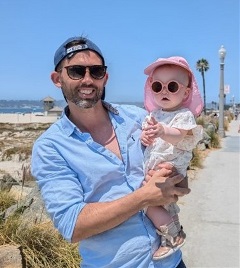
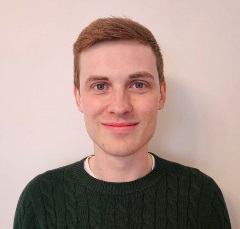
I am exploring what the consequences of including lymph node regions in radiotherapy treatments are on a patient's anti-tumour immune response, using translational samples from neo-adjuvant breast radiotherapy trials. This work ultimately aims to provide a clearer picture of how to best use radiotherapy in the era of immunotherapies for patients with early breast cancers. I'm training to be a clinical oncologist - we deliver all non-surgical treatments for cancer including radiotherapy, chemotherapy, targeted drug therapies and immunotherapy.
Outside work I enjoy walks, chess and cooking.
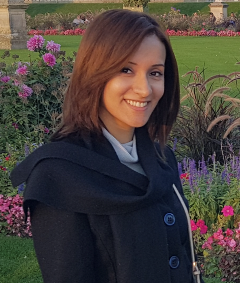
Among patients with recurrent and metastatic head and neck cancers, only 20% experience durable response on immunotherapy. This reflects the need to identify new ways to maximise the benefit of treatment for those patients who relapse early, and an in vivo early response biomarker could identify patients whose treatment could be escalated. In this PhD project, I will be studying different liquid biopsy approaches to establish a biomarker for dynamic response assessment in advanced head and neck cancer patients receiving immunotherapy. The ultimate aim is developing strategies that could be tested in clinical trials to better tailor treatment for our patients.
I had lived on 3 different continents by the age of 30.
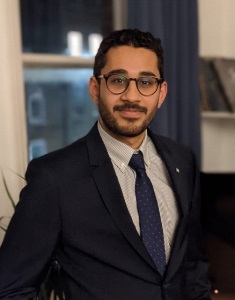
Only 1 in 8 patients diagnosed with oesophageal adenocarcinoma in the UK are still alive after 10 years from diagnosis. This demonstrated the critical need for earlier and more accurate diagnostic methods for oesophagogastric cancers, which often present late and mimic benign conditions. By investigating immune-cancer interactions and their contribution to exhaled breath volatiles, this research has the potential to refine a breath test that could triage symptomatic patients, enabling earlier detection and improving outcomes for cancer patients. This approach aligns with the growing emphasis on early diagnosis as the best chance for curative treatment.
I am most excited about learning new research techniques, collaborating with experts in their fields and making meaningful contributions to early cancer detection.
Growing up I went to 10 different schools.
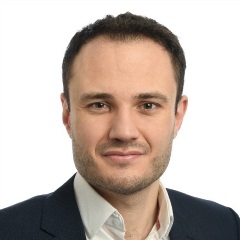
This project will focus on a CDK12 inhibitor that has been developed at Imperial and recently entered a phase 1 clinical trial. My primary aim will be to identify biomarkers and combination strategies that may be used in later research and clinical trials. I thought that this was a compelling project as this is a first in class drug with a strong biological rationale and the lab has had previous success with the CDK 7 inhibitor, samuraciclib. This project was also highly translational with a clear plan as to how it could impact future clinical trials. This fits well with my aim of becoming a clinician scientist.
As a clinician with a background in clinical research, I know it will be challenging to learn new lab skills. However, I am looking forward to developing these and embracing these techniques to answer the questions that we have. I hope that we will produce some exciting and clinically relevant results.
I became Lancashire’s Under 18 110m Hurdles Champion by being the only person to turn up to the race.